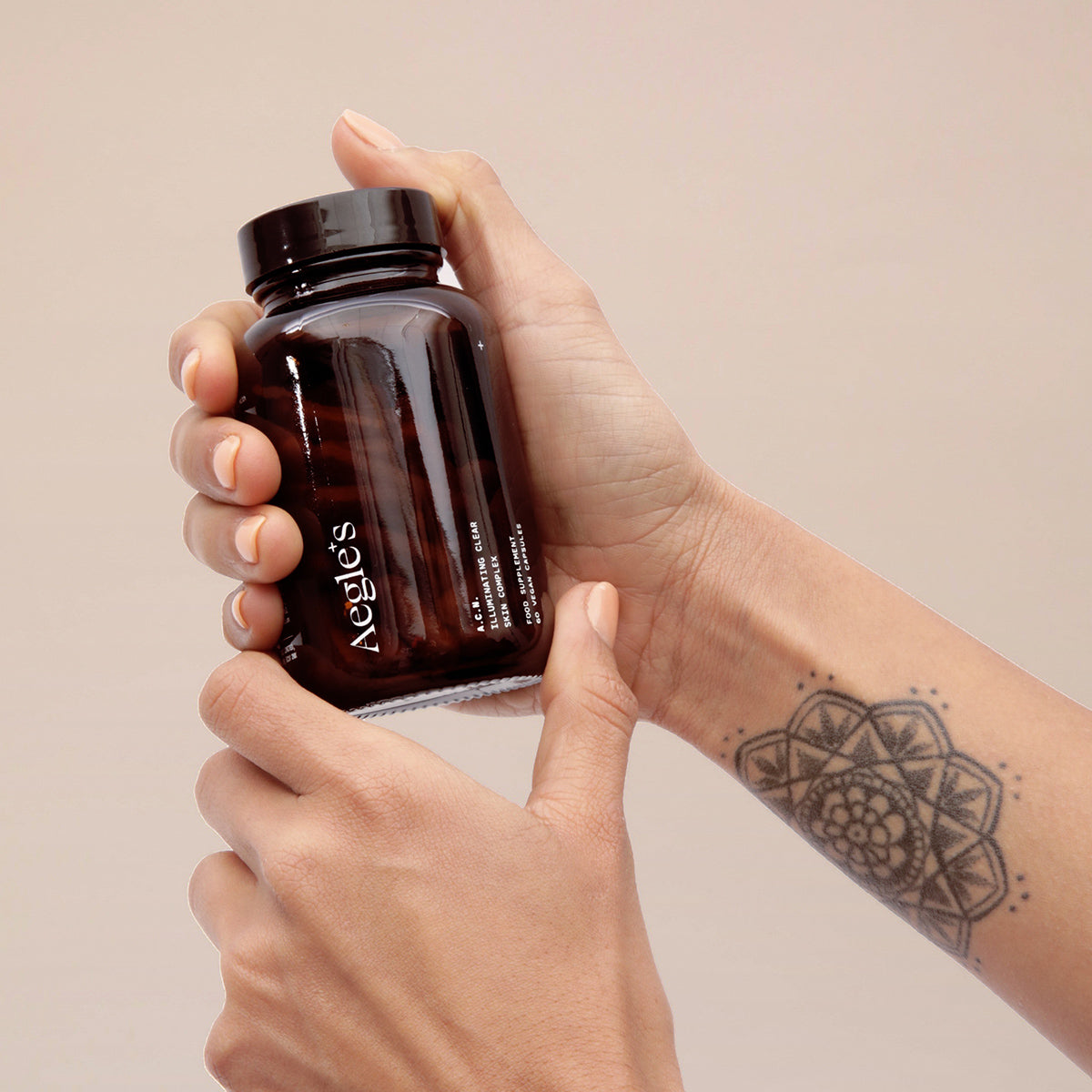Our bodies are designed to handle small doses of stress. However, we were simply not built to deal with chronic levels of stress and anxiety.
So what happens when a woman experiences chronic stress? And how can this stress cause her acne?
Stress and the female hormonal system
We know that acne is the result of an excess of sebum production. And we know the main cause of this excess of sebum production is usually hormonal. So which hormones that are connected to stress are also connected to excess sebum production?
What happens to our hormones when we feel stressed?
When we feel anxious or stressed our body increases the production of steroid hormones called glucocorticoids.
Glucocorticoids include cortisol. Cortisol is considered to be the “stress hormone”. The role of cortisol is to increase the energy available by mobilising glucose and fatty acids from the liver. This is the body's way of providing enough energy to deal with the stressful event. In the days of the possibility of being chased by a saber-toothed tiger, we definitely needed this extra energy to save our own life.
The stresses of the modern world are usually not so life threatening, but our body still has the same release of cortisol in a stressful event as if we are still being chased by that saber-toothed tiger.
Over time, this increased production of cortisol can cause elevated blood-sugar levels, as the cortisol continues to mobilise glucose in the body.
This increase in blood-sugar can then be the pathway to insulin resistance, increased levels of 5a-Reductase (5AR) activity, and therefore increased levels of acne causing dihydrotestosterone (DHT).
Stress and progesterone
The hormone progesterone is a precursor to cortisol. This means as cortisol levels continue to be produced, over time progesterone levels can drop.
Healthy progesterone levels are essential for a healthy menstrual cycle. They are also essential for helping to regulate healthy sebum production. It is progesterone that is responsible for calming down excess sebum production in the two week window leading up to the first day of bleeding in a woman’s menstrual cycle. When a woman experiences a worsening of acne in this two week window before bleeding, it is often low progesterone which is the primary cause.
Stress and prolactin
The hormone prolactin is immediately induced by a psychological stress response in the body. Prolactin stimulates sebum production. So excess prolactin can result in excess sebum production, and therefore a higher possibility of an acne breakout. If the prolactin levels remain high from chronic stress levels, the acne can become chronic.
So as you can see, elevated stress levels over a long period of time can contribute to chronic acne in women by adversely affecting DHT, progesterone and prolactin levels.
Stress and inflammation
Stress induces inflammation in the body, which can contribute to many symptoms and disease. Science has observed that chronic inflammation is an essential component of chronic disease, with acne being no exception.
Stress and gut microbiome
A healthy gut microbiome is essential for healthy hormone regulation, including estrogen metabolism.
Stress has been identified to alter our gut microbiome in both the short and long term. So when we are chronically stressed, we can also experience an imbalance in our hormonal system over the long term.
The hormone group in particular that can be adversely affected by alterations in our gut microbiome that are linked to acne in adult women, is estrogen metabolism.
Without adequate estrogen metabolism, a woman can become estrogen dominant, with elevated levels of unhealthy estrogens. This type of estrogen dominance is one of the leading causes of acne in adult women.
How to heal stress related acne
As we’ve discovered in this article, chronic stress can lead to all four of the hormonal imbalances that can cause chronic acne in adult women. These are elevated DHT, low progesterone, elevated prolactin, and estrogen dominance. Stress can also lead to chronic inflammation and alterations to gut microbiome. It is for this reason that it could be said that chronic stress is the leading cause of acne, simply because it can contribute to such a variety of acne-causing imbalances.
So how do we heal acne related to chronic stress and anxiety?
Healing stress related acne is best done with a holistic approach. The cause of the stress needs to be the primary treatment. This could mean daily meditation or mindfulness practices, spending more time connecting with your community, keeping a regular exercise routine, or booking in a therapist. Whatever helps to reduce your chronic stress levels will have a direct positive effect on your skin condition.
Body related stress can be caused by exercise that is too intensive or a diet that is too high in stimulants. Drinking good amounts of clean water, keeping exercise to moderation, breathing fresh air, and sticking to a healthy whole-food, anti-inflammatory and low-stimulant diet, will help the physical body to deal with any chronic stress.
For a herbal and supplementation regime, it is recommended to take calming herbs to help to regulate the nervous system along with a supplement that contains probiotics and ingredients that help regulate blood-sugar levels.
In conclusion
It’s unfortunate that our bodies have not adapted to the stressors of modern times, and we’re still unconsciously watching out for that saber-toothed tiger. As we’ve learned in this article, stress can cause a wide range of imbalances in the body that can easily lead to chronic acne, and more serious chronic disease.
Having an acne response to chronic stress can in a way be a blessing in disguise. As by working with and healing stress in the physical, mental and emotional bodies, we’re greatly preventing our chances from dealing with a more serious chronic disease later down the track.
Start your journey to heal your skin now.

Start your journey to heal your skin now.
- Contains ingredients clinically proven to improve blemishes and skin radiance.
- Formulated by one of the world's leading skin practitioners.
- The only supplement that works for the three main causes of blemishes, blackheads and oily skin.
Discover more articles
- Choosing a selection results in a full page refresh.






